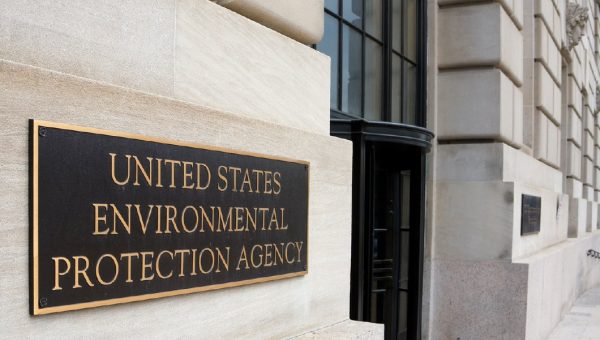Your tax dollars for protecting the environment are actually protecting … parking spaces: EPA spent $1.5 million on parking; many spaces never even used
12/29/2017 / By Jayson Veley

If there’s one thing that the federal government is good at, it’s taking other people’s money and blowing it on things that are completely unimportant and irrelevant.
According to a report put out last month by Judicial Watch, the bloated and horribly wasteful Environmental Protection Agency (EPA) paid a total of $1.5 million over a two-year period for subsidized and unoccupied parking spaces, which was in direct violation of an existing executive order that prohibits the use of taxpayer dollars on parking subsidies in the federal workforce.
The two locations involved in the scandal, the EPA headquarters in Washington, D.C., and a regional office in Atlanta, Georgia, spent over $840,000 in subsidized employee parking, and an additional $690,000 for unoccupied spaces, according to a recently released federal audit of the governmental agency.
Needless to say, it is incredibly ironic that the Environmental Protection Agency prides itself on being a staunch defender of the environment, while simultaneously ignoring existing law to provide space for its employees to park their carbon dioxide-emitting vehicles.
Furthermore, it’s worth noting that the EPA is demonstrating an incredible amount of disrespect for its supporters and followers, most of whom have donated money with the expectation that it would be used to maintain the environment, not for subsidized and unoccupied parking spaces for the agency’s workers. Quite frankly, everyone who sent money to the EPA over the past two years should be infuriated.
Sadly, this is hardly the first time that the Environmental Protection Agency has wasted away American taxpayers’ hard-earned money. Back in 2014, the Daily Caller ran a story on a report released by Arizona Republican Senator Jeff Flake, which found countless examples of waste and excess within the EPA, including employees illegitimately spending an astonishing $15 million on agency credit cards, and an additional $9 million that the EPA somehow lost track of while funding various projects in the state of California.

According to the report, the Environmental Protection Agency spent “$3,500,000 to fund ‘Planning for Economic and Fiscal Health’ workshops across the country… $1,500,000 annually to store out-of-date and unwanted publications at an Ohio warehouse,” and an additional “$700,000 to attempt to reduce methane emitted from pig flatulence in Thailand.”
Another $40,000 was also spent on a portrait of former Chief Administrator Lisa Jackson, even though Jackson resigned in 2013, after being caught up in the middle of a transparency scandal. (Related: The EPA spent millions in taxpayer dollars to push climate change propaganda via social media.)
“For an agency keen to regulate every puddle from a rainstorm, the EPA has proven itself remarkably inept when it comes to managing its own affairs,” Senator Flake said at the time.
In April of this year, Breitbart News revealed that an employee at the EPA used taxpayer funds to pay for nearly $15,000 worth of one-year gym memberships for other employees. The worker in question, identified as contracting officer, Kevin Broadnax, bought 37 employees one-year memberships to the gym 24-Hour Fitness, totaling $14,799.63.
This is yet another example of not only the astonishing amount of waste that goes on within our government, but also the seemingly limitless amount of corruption and unethical behavior it practices. (Related: The EPA spends nearly 300K to track the energy and water use of office workers.)
Given how frivolous the EPA is with taxpayer money, it’s hard to imagine how anyone could be opposed to the idea of cutting the department back altogether, ultimately forcing it to get back to its original mission of protecting and preserving the environment. Thankfully, under the leadership of President Trump, Scott Pruitt is in charge of the EPA, and he seems determined to get things back on track as quickly as possible.
Sources include:
Submit a correction >>
Tagged Under:
Bureaucrats, corruption, environ, EPA, EPA Watch, government, government waste, stupid, Taxes, waste
This article may contain statements that reflect the opinion of the author





















